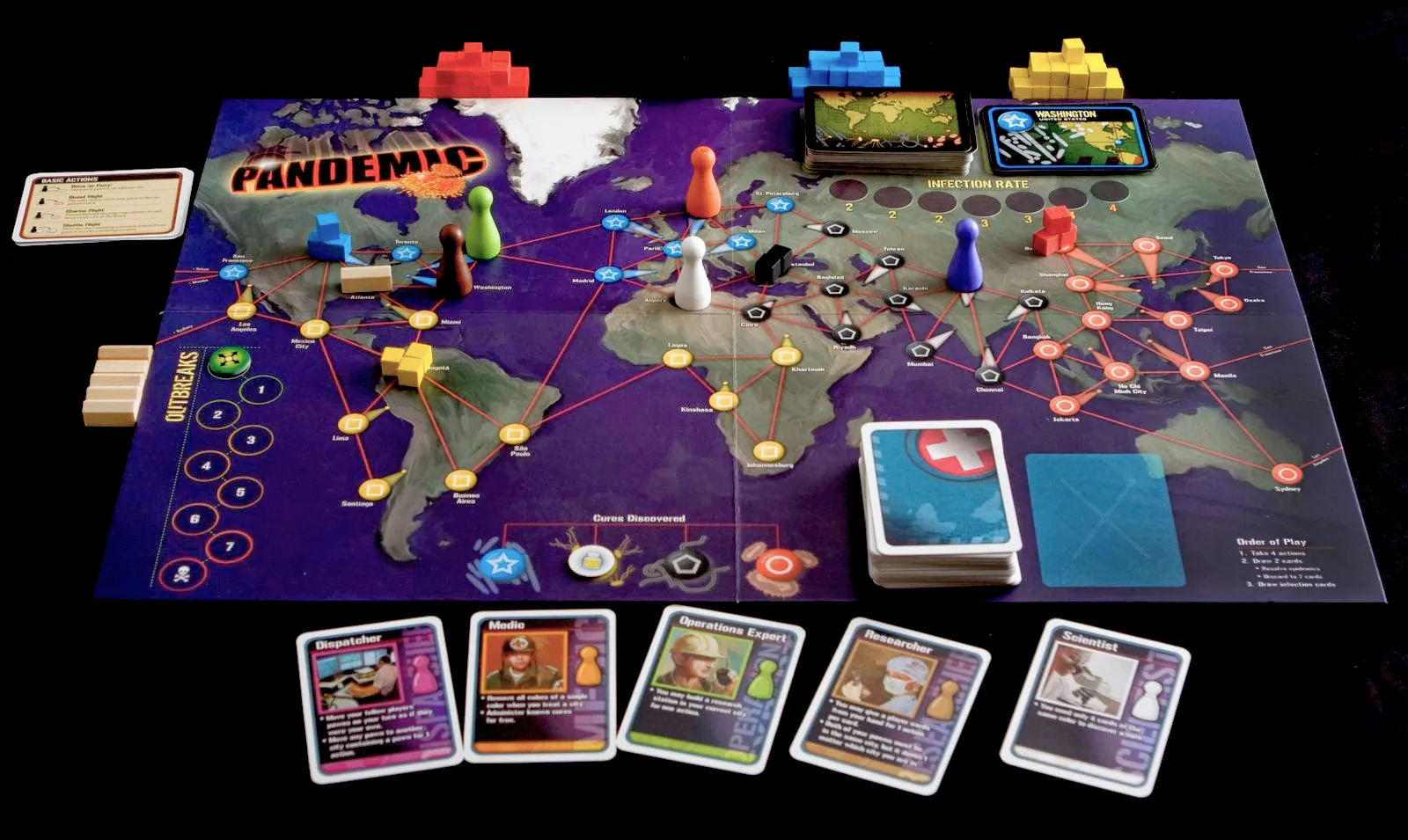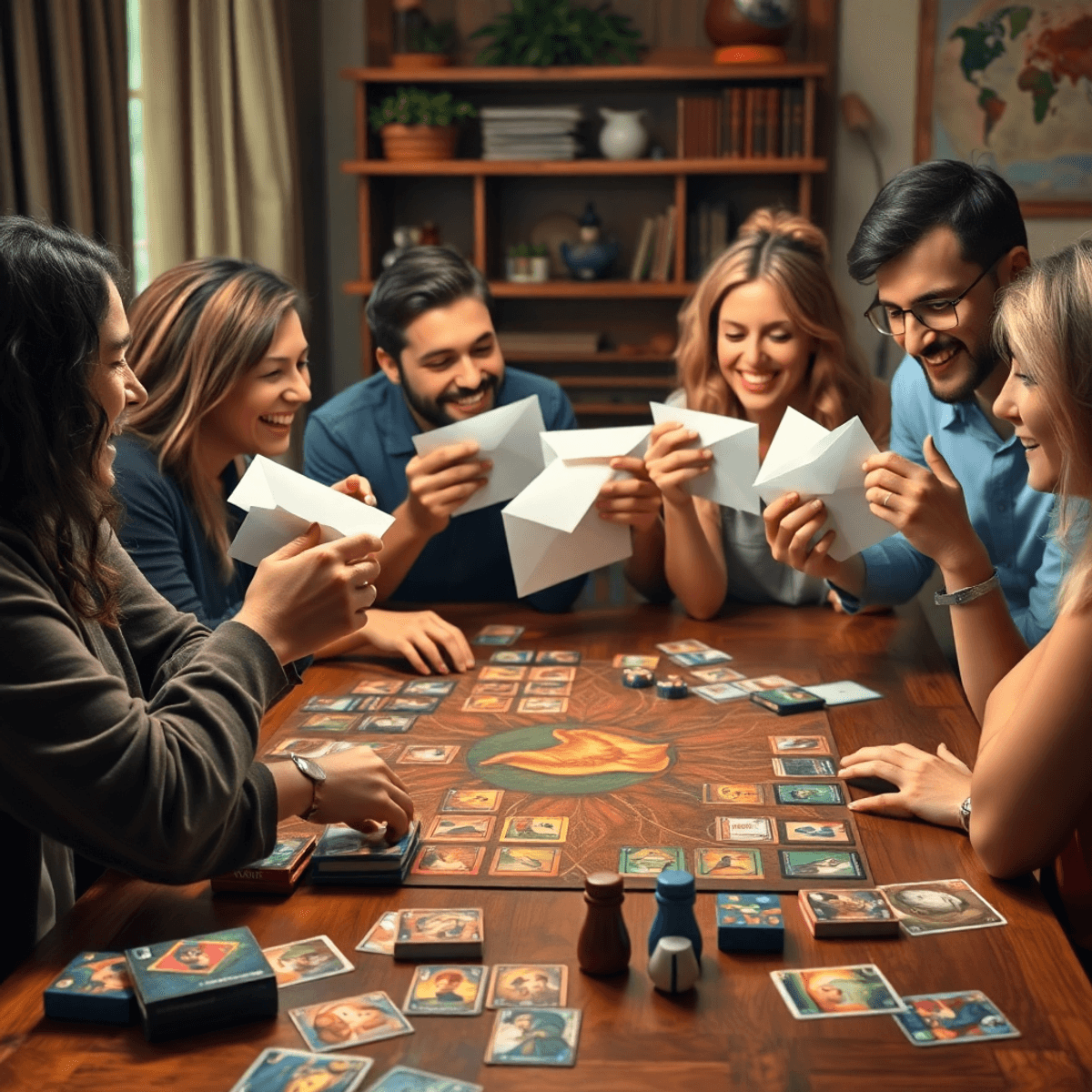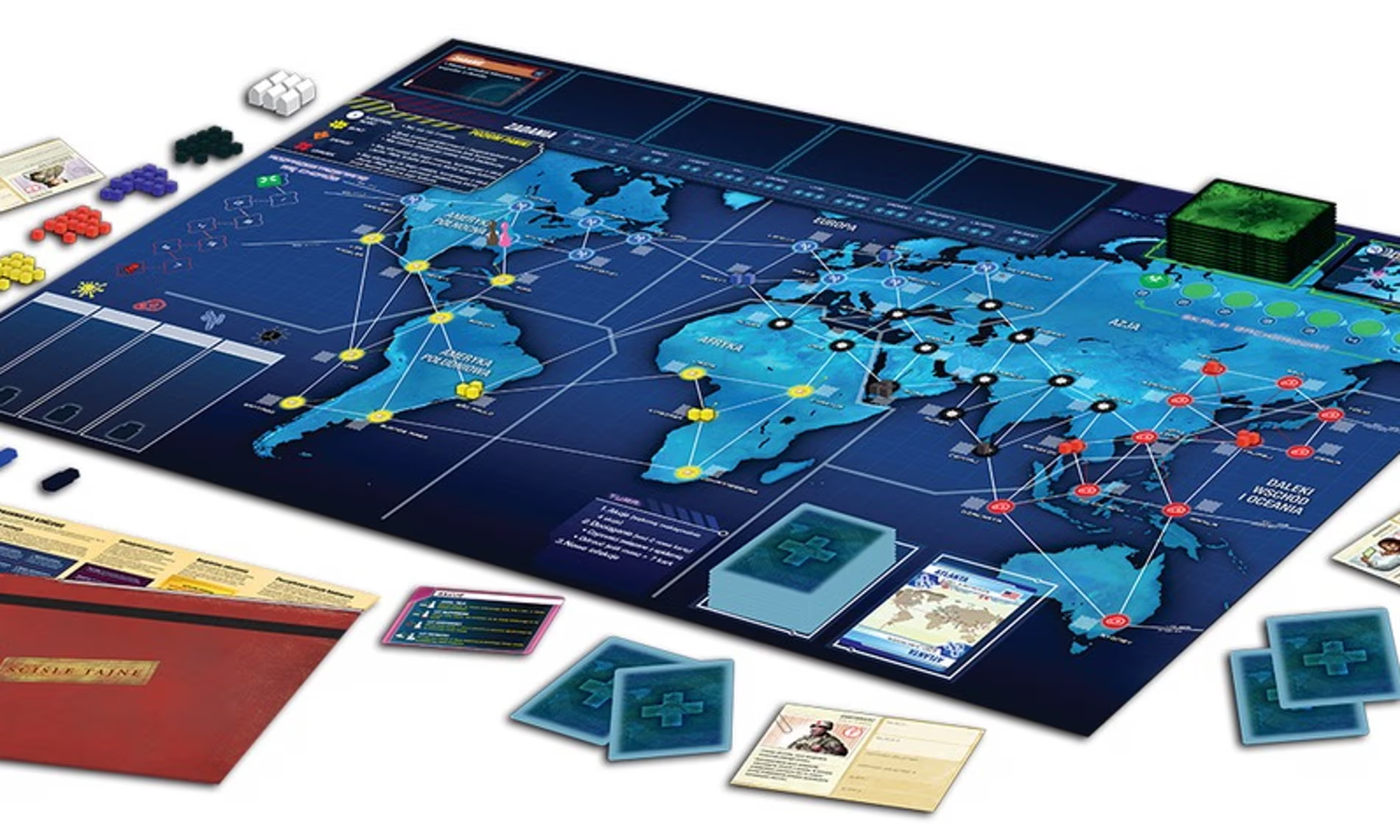
Board gaming has changed a lot over the years, giving rise to new formats that challenge traditional gameplay norms. Legacy and campaign-based games are prime examples of this shift, offering players a fresh way to experience tabletop games through ongoing narratives that unfold over multiple sessions.
These groundbreaking gaming formats have redefined player engagement by introducing:
- Permanent changes to game components
- Storylines that evolve based on player decisions
- Systems for character progression
- Unlockable content that introduces new mechanics
The transition from static board games to dynamic, story-driven experiences reflects the gaming community’s desire for deeper, more meaningful interactions. By examining the rich history of legacy and campaign-based games, we gain valuable insights into their current state and potential future developments.
This article delves into the fascinating evolution of these innovative gaming genres, tracing their roots back to role-playing games and exploring how they have become some of the most sought-after tabletop experiences today. Understanding this transformation helps us appreciate the creative design principles that continue to shape the future of board gaming.
The Origins of Legacy & Campaign-Based Board Games
The birth of legacy and campaign-based board games traces back to a revolutionary moment in 1974 when Dungeons & Dragons introduced the concept of persistent storytelling in tabletop gaming. D&D created a new paradigm where players’ choices shaped ongoing narratives, establishing the foundation for modern legacy games.
These early role-playing adventures demonstrated three key innovations that would later define legacy gaming:
- Character Development – Players maintained characters across multiple sessions, growing in power and ability
- World-Altering Decisions – Choices made in one session affected future gameplay opportunities
- Narrative Continuity – Stories unfolded gradually through interconnected play sessions
The success of D&D sparked a wave of experimentation in narrative-driven tabletop experiences. War games began incorporating linked scenarios, while adventure board games added character progression systems. This evolution of emergent storytelling created increasingly complex gaming experiences where:
“Each session writes a new chapter in an unfolding story, with players as both audience and authors” – Gary Gygax, D&D co-creator
By the late 1980s, board game designers were actively exploring ways to incorporate persistent elements into their designs. Games like Hero Quest (1989) and Campaign Quiz (1990) experimented with connecting multiple play sessions through narrative threads and character advancement.
These early attempts at campaign-style gameplay laid crucial groundwork for future innovations. The combination of strategic decision-making with lasting consequences created a new form of player engagement that would eventually revolutionize modern board gaming through legacy mechanics.
The Evolution of Legacy Board Games
The world of board games changed significantly in 2011 with the launch of Risk: Legacy, a game that broke away from traditional gaming norms. Designer Rob Daviau asked an interesting question: “Why does the game world reset after each playthrough?” This simple question led to the creation of a whole new way of playing games.
What Makes Legacy Games Different?
Risk: Legacy introduced several innovative mechanics that defined the legacy genre:
- Permanent Changes: Players write on the board, tear up cards, and apply stickers that permanently change the game
- Surprise Elements: Hidden packets and boxes reveal new rules, pieces, and storylines as specific conditions are met
- Changing Rules: The game’s rules evolve throughout the campaign, creating dynamic gameplay experiences
Why Do Players Love Legacy Games?
The permanent nature of these changes creates a unique psychological impact on players. Each decision carries weight, knowing it will affect all future games. This innovative approach generates:
- Personal investment in the game world
- Memorable gaming moments
- Individual stories that differ between copies
- Enhanced player engagement

How Do Legacy Games Keep Things Fair?
Legacy games incorporate various mechanisms to maintain balance while introducing new elements:
- Careful Planning: Designers create specific conditions for unlocking content to ensure players discover it at the right time
- Different Choices: Branching storylines and multiple paths create diverse experiences
- Surprise Factors: Sealed components keep suspense and excitement throughout the campaign
What Can We Learn from Risk: Legacy?
The success of Risk: Legacy established core design principles for future legacy games:
- Limited replay value balanced against deeper, more meaningful experiences
- Strategic permanent changes that affect game balance
- Narrative elements woven into mechanical modifications
- Progressive complexity that builds upon established rules
These innovations created a new standard in board game design, inspiring designers to explore fresh ways of incorporating permanent changes and evolving narratives into their games. The legacy format demonstrated that players value unique, personalized experiences that develop through multiple gaming sessions.
Campaign-Based Board Games: A Growing Trend
The world of board games changed significantly with the release of Pandemic Legacy: Season 1 in 2015. This innovative game redefined cooperative gameplay by introducing a story-driven structure that unfolds over multiple sessions. Players face increasing challenges as they fight against global diseases, with each game session revealing new twists, rule changes, and strategic options.
Key Features of Pandemic Legacy’s Innovation:
- Monthly story chapters that unlock new content
- Character development through experience and scars
- Permanent consequences affecting future gameplay
- Hidden components revealed through narrative progression
- Adaptive difficulty based on player performance
The success of Pandemic Legacy sparked a revolution in campaign-based game design. These games differ from traditional board games through their interconnected scenarios, creating a rich storytelling experience that builds upon previous sessions without permanently altering game components.
How Campaign Games Tell Stories
Campaign games use different methods to tell their stories:
- Branching Narratives: Player choices determine which scenarios unlock next
- Character Progression: Skills and abilities develop throughout the campaign
- Resource Management: Items and achievements carry over between sessions
- Environmental Storytelling: Game boards and cards reveal story elements gradually
Examples of Modern Campaign Games
Modern campaign games embrace diverse themes and mechanics:
- Descent: Legends of the Dark uses a companion app to generate dynamic storytelling elements
- Arkham Horror: The Card Game builds tension through expandable narrative cycles
- The King’s Dilemma creates political intrigue through interconnected choices that shape a kingdom’s destiny
The linked scenario format allows designers to craft intricate narratives impossible in standalone games. Players experience character growth, face consequences of past decisions, and uncover mysteries across multiple gaming sessions. This format creates deeper emotional investment and memorable gaming moments unique to each group’s journey through the campaign.
Legacy vs. Campaign Board Games
Legacy and campaign board games share narrative-driven experiences, yet their distinct mechanics create unique player experiences. Let’s explore these key differences:
Legacy Games:
- Permanent physical alterations to components
- One-way progression through storylines
- Irreversible decisions that shape future gameplay
- Limited replay value after campaign completion
- High emotional investment due to lasting consequences
Campaign Games:
- Resettable components and gameplay elements
- Multiple playthrough possibilities
- Reversible choices between sessions
- Unlimited replay potential
- Flexible entry points for new players
The appeal of legacy games lies in their unique, personalized journey. Players who enjoy making meaningful, permanent decisions gravitate toward legacy titles. These games create memorable experiences through physical transformations – tearing cards, applying stickers, or writing on the board. Each group’s copy becomes distinctly their own through their choices and actions.
Campaign games attract players who value replayability and experimentation. These games maintain their components’ integrity while delivering connected narratives. Players can reset and replay scenarios, try different strategies, or introduce new group members without compromising the game’s integrity.
Player Experience Considerations:
- Legacy games demand consistent player groups
- Campaign games accommodate flexible attendance
- Legacy titles offer higher stakes decisions
- Campaign formats provide risk-free experimentation
The choice between legacy and campaign games often depends on player preferences for permanence versus flexibility. Both formats excel at storytelling and character development, but their approaches to player agency and game preservation create distinct gaming experiences.
Popular Legacy Board Games You Should Try
The legacy board game market offers rich, diverse experiences for players seeking evolving narratives and deep gameplay mechanics. Here are some standout titles that showcase the best of the genre:
1. Gloomhaven
Gloomhaven is a massive dungeon-crawling experience with 95+ scenarios. It features tactical combat and character retirement systems, where each choice impacts the world’s development. The game also includes hidden content and unlockable characters, adding to its replayability.
2. Frosthaven
The ambitious sequel to Gloomhaven, Frosthaven introduces new crafting and town-building mechanics. Seasonal changes affect gameplay, creating dynamic challenges for players. With 100+ scenarios set in a harsh winter environment, this game promises an epic adventure.
3. Betrayal Legacy
Betrayal Legacy takes the classic Betrayal at House on the Hill formula and expands it into a multi-generational story. Each game adds new rooms and family histories, allowing players to create unique narratives over time. This blend of horror and mystery elements makes for an immersive experience.
4. My City
If you’re new to legacy games, My City is a perfect starting point. It offers a lighter legacy experience with competitive city-building mechanics. Over 24 episodes of increasing complexity, players will face permanent changes that influence future gameplay strategies.
These games represent different complexity levels and themes within the legacy genre. Gloomhaven offers deep strategic gameplay, while Betrayal Legacy focuses on storytelling and atmosphere. My City provides an accessible entry point for players new to legacy mechanics.
Each title creates unique experiences through permanent alterations, unlockable content, and branching narratives that unfold across multiple sessions. The physical changes to game components ensure no two groups will share identical adventures.
Designing Engaging Experiences: Insights from Creators
Creating successful legacy and campaign-based board games requires a delicate balance of storytelling, mechanics, and player agency. Game designers face unique challenges when crafting experiences that unfold across multiple sessions.
Core Design Principles:
- Meaningful Choices: Players’ decisions must impact both immediate gameplay and future scenarios
- Balanced Progression: New mechanics should introduce complexity gradually without overwhelming players
- Replayability: Despite permanent changes, each playthrough needs to maintain engagement
- Component Management: Physical alterations must enhance rather than detract from the experience
Game designer Rob Daviau, creator of Risk Legacy, emphasizes the importance of emotional investment through permanent changes. These alterations create a unique game state that players feel ownership over, strengthening their connection to the experience.
Narrative Integration Techniques:
- Branching storylines that adapt to player choices
- Hidden content revealed at strategic moments
- Character development systems that evolve naturally
- Environmental storytelling through board modifications
Designer Isaac Childres of Gloomhaven highlights the significance of playtesting feedback loops. Early prototypes undergo extensive testing to ensure mechanics serve the narrative without sacrificing gameplay depth.
The design process also involves careful consideration of pacing structures. Legacy games must maintain excitement while providing natural stopping points between sessions. This rhythm keeps players invested without causing fatigue or confusion.
Many creators incorporate fail-forward mechanisms – ensuring that even unsuccessful attempts advance the narrative and maintain player engagement. This approach prevents stagnation while preserving challenge levels throughout the campaign.
Future Trends in Legacy & Campaign-Based Board Games
The world of legacy and campaign-based board games is on the brink of exciting new developments. Here are some key trends to watch out for:
1. Digital Integration and Hybrid Systems
Digital integration is set to revolutionize the gaming experience. Hybrid systems that combine physical elements with app-driven stories are becoming more popular. These systems offer several advantages:
- Real-time story adaptations based on player choices
- Dynamic rule modifications through digital updates
- Interactive soundscapes and ambient effects
- Augmented reality overlays for enhanced immersion
2. Personalized Gaming Experiences
Another significant trend is the rise of personalized gaming experiences. Thanks to advanced printing technologies, publishers can now create customized components that reflect each player’s decisions and accomplishments throughout the campaign.
3. Artificial Intelligence and Adaptive Storytelling
Artificial intelligence integration opens up exciting possibilities for adaptive storytelling. With AI-driven narrative engines, it’s possible to generate unique storylines and challenges based on how players behave, resulting in truly dynamic campaign experiences.
4. Sustainable Legacy Gaming
Environmental consciousness is driving innovation in sustainable legacy gaming. Designers are exploring various approaches such as:
- Reversible legacy mechanics
- Recyclable components
- Digital preservation of game states
- Modular systems that allow for component reuse
5. Social Connectivity in Multiplayer Experiences
The concept of social connectivity is reshaping multiplayer experiences in board games. This includes:
“Connected campaigns” allowing different gaming groups to influence shared narrative universes
Cross-platform integration between physical and digital play spaces
Community-driven content creation and modification
6. The Fusion of Traditional Mechanics and Technology
The combination of traditional tabletop mechanics with cutting-edge technology holds great promise for creating richer, more immersive stories. For instance, virtual tabletop integration enables seamless remote play while still preserving the tactile appeal of physical components.
These innovations suggest a future where legacy and campaign games provide increasingly complex, tailored experiences while fostering stronger community bonds through shared storytelling.
Conclusion
Legacy and campaign-based board games are an exciting evolution in tabletop gaming. These innovative formats have turned static game nights into dynamic, story-rich adventures that captivate players over multiple sessions.
The gaming community is at an exciting crossroads, with many opportunities to shape the future of these engaging formats. New players can start their journey with accessible titles like Pandemic Legacy or Jaws of the Lion, while experienced gamers might explore the rich complexity of Gloomhaven or Frosthaven.
Your participation matters – whether through:
- Joining local gaming groups
- Sharing experiences on social media
- Supporting independent game designers
- Contributing to playtesting sessions
The future of legacy and campaign games lies in the hands of passionate players who embrace these evolving experiences. By exploring new titles and actively engaging with the community, you become part of an exciting movement that continues to push the boundaries of what board games can achieve.
Start your legacy adventure today – your next favorite gaming experience awaits.




